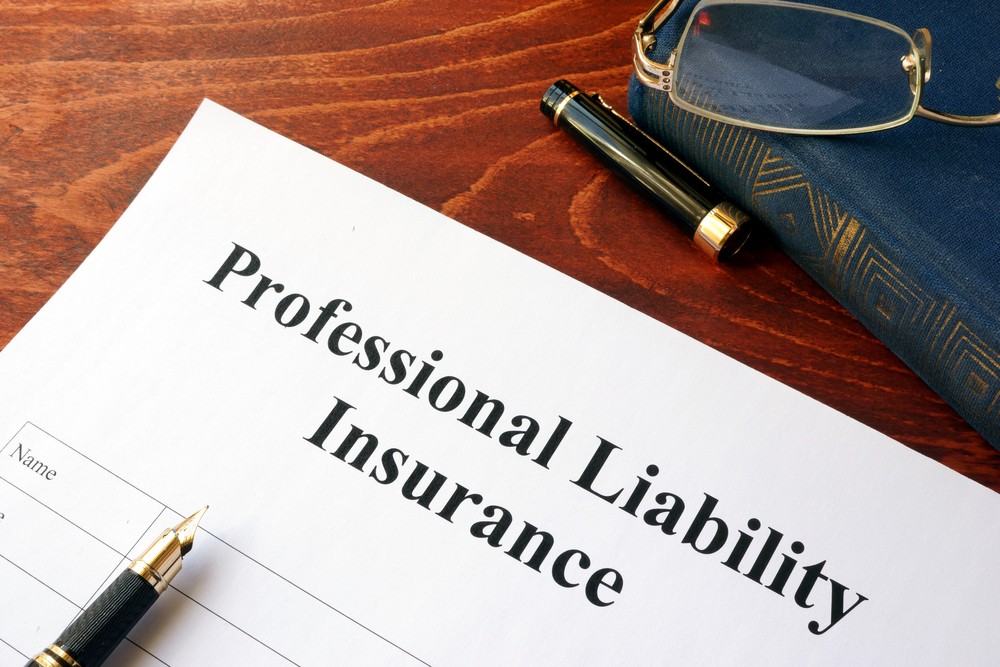Property management can be a profitable business, but success depends on various factors. First and foremost, location plays a crucial role. In high-demand areas with a thriving real estate market, property management can be lucrative due to steady rental income and property appreciation.
Effective management skills are also essential for profitability. Property managers handle various tasks such as tenant screening, rent collection, maintenance, and legal compliance. Efficient management ensures lower vacancies, reduced maintenance costs, and satisfied tenants, leading to higher returns on investment.
Scalability is another factor. As a property management company grows, economies of scale can boost profits. Managing a larger portfolio of properties spreads operational costs across more units, increasing overall profitability.
Market conditions and economic stability also impact profitability. Economic downturns can lead to increased vacancies and rent defaults, affecting a property management company’s revenue.
Lastly, competition matters. In saturated markets, price competition can squeeze profit margins. However, offering exceptional service and building a strong reputation can help justify higher fees and maintain profitability.
👉Maximize your property management profits! RentPost’s all-in-one software streamlines operations from tenant screening to maintenance. Start your free 30-day trial today.
A Step-by-Step Guide
Setting up your own property management company be lucrative, and getting a head start isn’t that daunting. Careful planning, industry knowledge, and a commitment to providing quality services are essential for realizing the profit potential in property management.

1: Create a solid business plan.
Creating a solid business plan for a property management business is crucial for establishing a clear roadmap to success. Every business plan should include:
- Executive Summary: Begin with a concise overview of your property management business, including your mission, vision, and primary objectives.
- Market Analysis: Conduct thorough market research to understand your target market, competition, and industry trends. Identify the specific geographic areas you plan to operate in and assess demand for property management services.
- Company Description: Detail your company’s history, location, and ownership. Highlight what sets you apart from competitors.
- Services Offered: Clearly outline the property management services you will provide, such as tenant screening, rent collection, maintenance, and property marketing.
- Target Audience: Define your ideal clients – property owners, real estate investors, or homeowner associations – and explain how you will reach and serve them.
- Marketing and Sales Strategy: Explain your marketing plan, including online and offline strategies, to attract clients. Describe your sales approach and how you will convert leads into paying customers.
- Operational Plan: Detail the day-to-day operations of your property management company, including staffing, technology, and office space requirements.
- Financial Projections: Provide a comprehensive financial forecast, including income statements, balance sheets, and cash flow statements. Include startup costs, revenue projections, and break-even analysis.
- Risk Analysis: Identify potential risks and challenges in the property management industry and explain how you plan to mitigate them.
- Legal and Regulatory Compliance: Describe the legal requirements for operating a property management business in your jurisdiction and how you will ensure compliance.
- Exit Strategy: Outline your long-term goals for the business, whether it’s expansion, selling the company, or succession planning.
- Appendices: Include any additional information, such as resumes of key team members, market research data, or sample contracts.
A well-crafted business plan not only serves as a roadmap but also helps secure financing, attract partners, and guide your property management business toward profitability and growth. Regularly review and update the plan to adapt to changing market conditions and business objectives.

2: Determine your legal structure.
Are you setting up a sole proprietorship, partnership, LLC, or corporation? Determining the legal structure of a property management business is a crucial step that impacts liability, taxation, and operational flexibility. Here’s how to go about it:
- Understand the Options: Familiarize yourself with various legal structures, including sole proprietorship, partnership, limited liability company (LLC), corporation (C-Corp or S-Corp), and real estate investment trust (REIT). Each has its own pros and cons.
- Assess Liability: Consider the level of personal liability you’re willing to assume. Sole proprietors and partnerships offer minimal separation between personal and business assets, exposing owners to personal liability for business debts. In contrast, forming an LLC or corporation can provide limited liability protection, shielding personal assets from business liabilities.
- Tax Implications: Examine the tax implications of each structure. LLCs, S-Corps, and partnerships typically have pass-through taxation, where business profits are reported on owners’ individual tax returns. C-Corps face double taxation – once at the corporate level and again at the individual level. Choose a structure that aligns with your tax preferences and long-term financial goals.
- Operational Needs: Consider how each legal structure fits with your property management business’s operational needs. LLCs and corporations offer more flexibility for raising capital, attracting investors, and structuring management roles.
- Compliance and Registration: Research the legal requirements for registering each structure in your jurisdiction. This often involves filing articles of organization or incorporation and paying associated fees.
- Consult Professionals: Seek advice from legal and financial professionals with expertise in real estate and business law. They can provide insights into the best structure for your specific situation.
- Long-Term Goals: Keep your long-term business goals in mind. The chosen structure should align with your growth plans, exit strategy, and estate planning needs.
Ultimately, the legal structure of your property management business should be well-suited to your unique circumstances and objectives. It’s advisable to consult with experts and consider seeking legal counsel to ensure you make an informed decision that maximizes benefits and minimizes risks.

3: Register your business.
Registering a property management business in the United States involves several important steps to ensure legal compliance. Here’s a simplified guide:
- Business Entity Registration: Register your business entity with the appropriate state agency. In most cases, this involves filing articles of organization (for an LLC) or articles of incorporation (for a corporation). This can typically be done online or by mail.
- Obtain an EIN: Apply for an Employer Identification Number (EIN) from the IRS. An EIN is necessary for tax purposes and is often required when opening a business bank account.
- State Licenses and Permits: Depending on your location and the services you offer, you may need specific licenses or permits, such as a real estate license, property management license, or general business license. Check with your state and local government for these requirements.
- Open a Business Bank Account: Separate your personal and business finances by opening a dedicated business bank account.
- Comply with Tax Obligations: Understand your federal, state, and local tax obligations. Register for state sales tax if applicable and comply with payroll tax requirements if you have employees.
- Create Legal Agreements: Draft essential legal documents, such as property management agreements, lease agreements, and tenant screening criteria.
- Join Professional Associations: Consider joining industry-related associations like the National Association of Residential Property Managers (NARPM) for networking and resources.
The specific registration process may vary by state and locality, so it’s essential to research and follow the requirements in your specific area to ensure compliance and the successful launch of your property management business.

4: Get insured.
Obtaining insurance is crucial when running a property management business for several compelling reasons:
- Liability Protection: Insurance, such as general liability and errors and omissions (E&O) coverage, shields your business from financial ruin in the event of lawsuits. If a tenant or property owner sues you for negligence, wrongful eviction, or any other claim, insurance can cover legal expenses, settlements, or judgments.
- Property Damage Coverage: Property management businesses often oversee maintenance and repairs. If your team or contractors inadvertently damage a property, insurance can cover the cost of repairs or replacements, protecting your finances.
- Tenant Disputes: Tenant-landlord disputes are common. Insurance can help cover legal costs if you’re involved in disputes related to lease agreements, security deposits, or tenant rights.
- Cyber Liability: Property management businesses handle sensitive tenant and owner data. Cyber liability insurance can safeguard your business against data breaches, protecting both your reputation and financial well-being.
- Loss of Rental Income: If a property becomes uninhabitable due to covered perils like fire or natural disasters, loss of rental income insurance can provide compensation for the rental income you would have otherwise lost.
- Professional Reputation: Having insurance demonstrates professionalism and financial responsibility, which can attract clients and set you apart from competitors.
- Legal and Contractual Requirements: In some states and municipalities, property management businesses are required to carry specific insurance coverage to operate legally.
- Peace of Mind: Insurance provides peace of mind, allowing you to focus on your core business operations without the constant worry of unexpected financial setbacks.
- Client and Partner Expectations: Property owners and investors may require proof of insurance as a condition for doing business with you, as they want to protect their interests.
Insurance is a vital safeguard for property management businesses in the US. It not only protects your financial assets but also helps maintain your professional reputation, complies with legal requirements, and meets the expectations of clients and partners, ultimately ensuring the long-term viability of your business.

5: Work with the proper tools.
Property management software can be the hub for your operations and reduces the need for extra staff. Here are a few good reasons to use cutting-edge software in property management:
- Streamlined Operations: Property management software automates and streamlines various tasks such as rent collection, maintenance requests, and lease management. This reduces manual effort, minimizes errors, and enhances overall efficiency.
- Tenant and Owner Portals: These platforms offer online portals for tenants and property owners, allowing them to access important information, pay rent, submit maintenance requests, and view financial statements. This improves communication and customer satisfaction.
- Financial Management: Property management software simplifies financial processes like rent tracking, expense management, and generating financial reports. It helps ensure accurate accounting, timely rent collection, and transparent financial reporting for property owners.
- Maintenance and Repairs: Tracking maintenance requests and scheduling repairs is more organized and responsive with software. This can lead to quicker issue resolution and increased tenant satisfaction.
- Tenant Screening: Many software solutions include tenant screening tools that facilitate background checks, credit checks, and eviction history checks, helping property managers make informed tenant selection decisions.
- Document Management: Digital storage and retrieval of lease agreements, inspection reports, and other critical documents save time and reduce paperwork clutter.
- Compliance and Reporting: Property management software often comes with features that help property managers stay compliant with local laws and regulations, and generate necessary reports for property owners and tax purposes.
- Scalability: As your property management business grows, software can easily scale to accommodate a larger portfolio of properties and units without significant operational disruptions.
- Data Analytics: Access to data analytics tools can help property managers make data-driven decisions, optimize rental pricing, and identify trends in the market.
- Competitive Edge: Using modern technology and providing online services through property management software can give your business a competitive edge by attracting tech-savvy clients and investors.

6: Market your business.
Effectively marketing a property management business is essential to attract property owners and investors who require your services. Here’s a rundown of marketing tactics to consider:
- Build a Professional Website: Create a user-friendly, informative website that showcases your services, expertise, and client testimonials. Ensure it’s mobile-responsive and optimized for search engines (SEO).
- Online Listings: List your property management business on online directories, real estate portals, and social media platforms. Utilize Google My Business to enhance local visibility.
- Content Marketing: Develop and share valuable, industry-specific content such as blog posts, e-books, or videos to establish your authority and engage potential clients.
- Social Media: Maintain active social media profiles to connect with potential clients, share industry insights, and respond to inquiries promptly.
- Email Marketing: Build an email list and send regular newsletters or updates to current and potential clients, showcasing your services and industry knowledge.
- Networking: Attend local real estate events, join professional associations, and network with real estate agents, landlords, and investors.
- Referral Program: Encourage satisfied clients to refer your services to others, and consider offering incentives for successful referrals.
- Online Advertising: Invest in online advertising campaigns on platforms like Google Ads or Facebook Ads to reach a broader audience.
- Online Reviews: Encourage clients to leave positive reviews on platforms like Google, Yelp, or industry-specific review sites to build trust and credibility.
- Offer Free Resources: Provide free resources like property management guides, checklists, or webinars to attract potential clients.
- Targeted Marketing: Tailor your marketing efforts to target specific niches or geographic areas where your services are in demand.
- Unique Selling Proposition (USP): Highlight what sets your property management business apart, whether it’s exceptional customer service, technology integration, or specialized services.
- Monitor and Adjust: Continuously analyze your marketing efforts to identify what works best, allocate resources accordingly, and adapt your strategy as needed.
Remember that consistency is key in marketing. A well-rounded approach that combines online and offline strategies, showcases your expertise, and addresses the specific needs of property owners and investors is more likely to yield successful results in the competitive property management industry.
Start smart! With careful planning, execution, and the right tools, you’ve got the formula for growth and success in property management.


 Log in
Log in Free Trial
Free Trial




